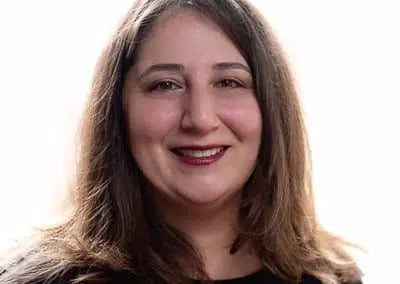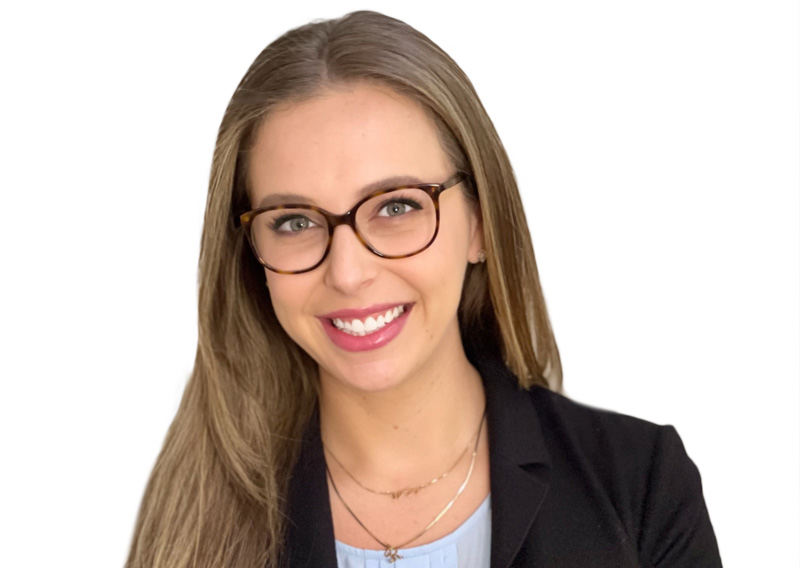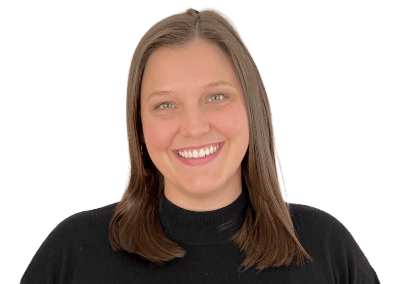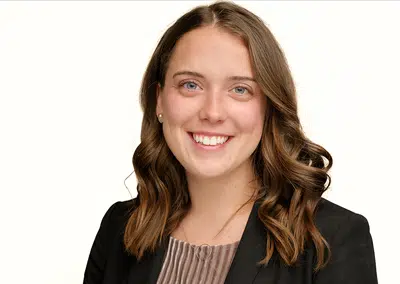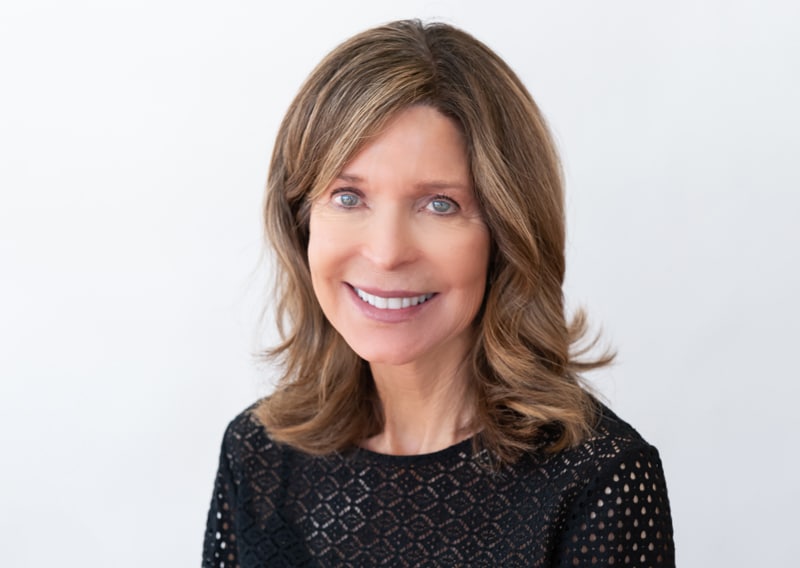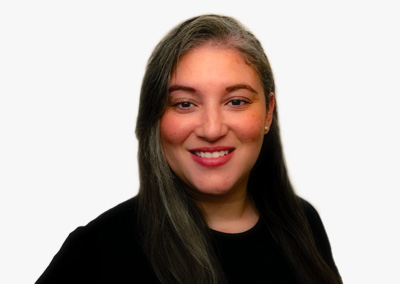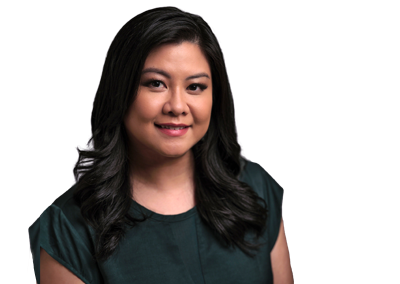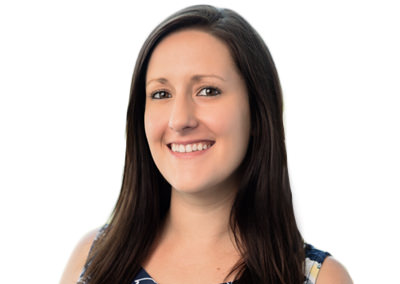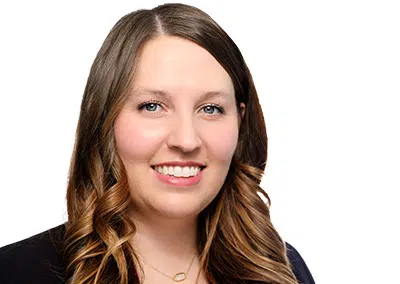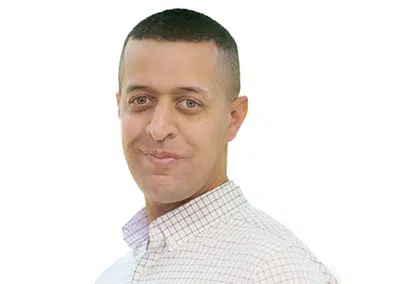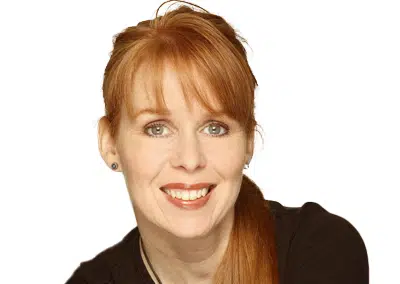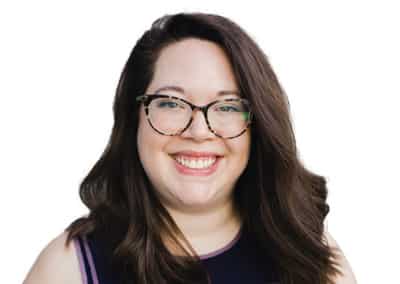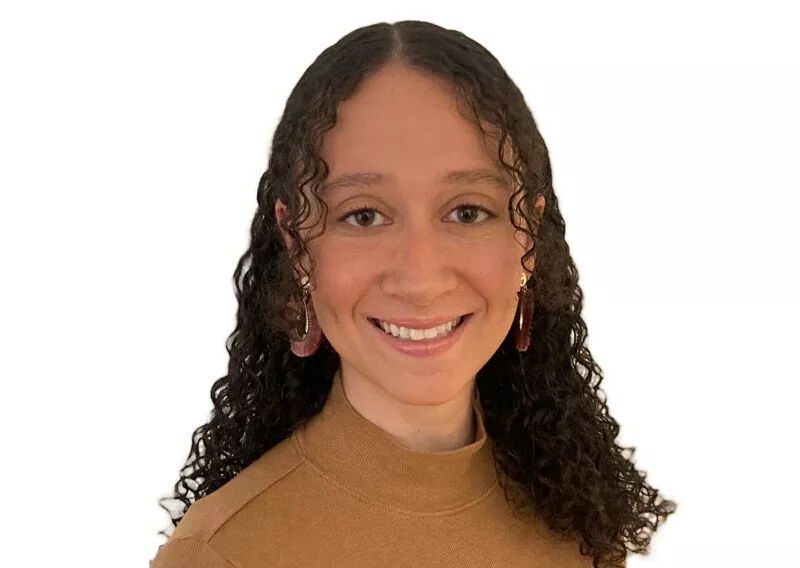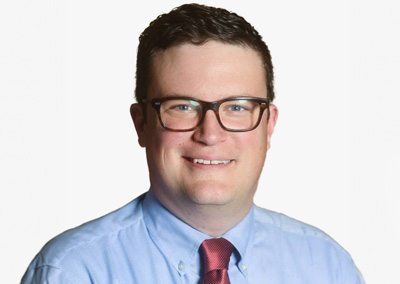Marriage Counseling Questions:
How to Find a Marriage Counselor

Dr. Lisa Marie Bobby is a licensed psychologist, licensed marriage and family therapist, board-certified coach, AAMFT clinical supervisor, host of the Love, Happiness, and Success Podcast and founder of Growing Self.
Takeaways: When your relationship is in trouble, it’s critical that you connect with the right professional who can actually help — and avoid connecting with a bad marriage counselor (or unqualified coach) who may even make the situation worse. Learn how to find a marriage counselor and get your relationship back on track.
- Getting help for your marriage
- How to find a GOOD marriage counselor
- Any non-MFT is not a marriage counselor
- Looking for evidence-based approaches
- Signs of incompetent marriage counseling
- Questions to ask a marriage counselor
- Get a free consultation
It’s time: You’ve been thinking about relationship counseling for a while now, and it’s officially time to find a marriage counselor.
You’ve tried working on things yourself, but the same issues creep back in. Communication feels hard. It’s like a horrible fight is always simmering under the surface. Resentments are building. Neither of you feel listened to. It’s time to take action and get help for your relationship — stat.
Getting Help For Your Marriage
But now you have a new problem: How do you find a marriage counselor? Specifically, how do you find a good marriage counselor, couples therapist, or relationship coach who can help you make real and lasting changes in your relationship? How do you connect with the wise person who can get through, support you, challenge you, guide you — and most importantly — help both of you grow, together?
Step 1: Researching Marriage Counselors Online
So you sat with the question: Do we need marriage counseling? If you’re reading this, the answer was probably yes.
So you turn to the all-knowing Google and search for “find a marriage counselor near me” and…. all of a sudden you’re knee-deep in smiling, sympathetic faces. It’s like some odd version of online dating: You scroll through photos and read profiles, looking for “The One.”
Some prospective marriage counselors look like weirdos and are easy to dismiss, but many seem okay. All of them seem to offer understanding, support, and help. They all seem nice enough. Certainly enthusiastic.
But you quickly learn that whether you’re looking for a Denver marriage counselor or a good online couples therapist there are lots and lots… and lots… of marriage counselors, couples therapists, and relationship coaches. So many. Literally thousands. How in the world do you narrow it down, let alone find a good marriage counselor?
It’s easy to get overwhelmed with questions like, “What do you look for in a marriage counselor? Should I just go for a marriage therapist near me? Are marriage counselors basically all the same? How can you tell a good marriage counselor from a mediocre one? What questions should I ask a prospective marriage counselor? How will my partner feel about this marriage counselor? I feel like I’m putting my life in their hands — can I trust this marriage counselor to help us?” It’s stressful!
Absolutely no one would blame you for slamming your laptop shut at this point and managing this anxiety through some strategic decision-avoidance (we all do it). But you and I both know it’s a bad idea to delay marriage counseling. It’s also a bad idea to just choose the easiest marriage counselor, for reasons you’ll learn here shortly.
So I’m here to help you sort through the sea of choices and find one of the best marriage counselors. By the end of this article I hope to empower you to effortlessly cross off about 98% of the possible-but-sub-par marriage counseling options and make an informed decision with confidence, knowing you’re getting involved with the *best* marriage counseling.
Because…
Your relationship is too important for anything but the best marriage counseling!
Step 2: Slow Down and Choose a Marriage Counselor Wisely
With so many choices, it can feel tempting to just pick one to get it over with. So you click on the marriage counselor who looks nice, or who has a slick website, or who has the hours you want.
Or you see a “Dr.” in front of their name and think, “Oh, they must know what they’re doing.” (Which is totally not true, by the way: Most psychologists (PhDs and PsyDs) have substantially LESS training on couples therapy than licensed marriage and family therapists (LMFTs), but more on that later.)
But here’s what you need to know: Getting involved with the wrong marriage counselor or couples therapist can lead to a waste of time and money, and a missed opportunity to really improve your relationship (at best).
At worst, it can create more problems for your relationship. And that is the last thing you need right now.
Pro Tip 1: Do not pick a marriage counselor on “convenience” alone.
If you are in the midst of a real relationship crisis, or at a significant impasse with your partner, getting involved with the wrong marriage counselor could potentially change the trajectory of your life and your family.
Choose your marriage counselor with intention, and frankly, caution.
People can wind up with the wrong marriage counselor for all kinds of reasons, but often for reasons of convenience: They Google “marriage counseling near me” and click on the first paid ad that takes them through a slick funnel. Or people will choose the Denver marriage counselor’s office closest to their house, or the one that offers sliding scale rates, or has evening or weekend appointments, or takes insurance for “marriage counseling.”
Note about the last point: People don’t realize that marriage counseling or couple’s therapy is not actually covered by insurance. “Family therapy” for the treatment of one partner’s psychiatric diagnosis is considered a medically necessary treatment, and health insurance will cover that, but going that route — pathologizing one partner — can open up a new can of worms for a couple on the brink.
For more on this subject, check out the section toward the end of this article about “mental health and marriage counseling” or the related article, “Does Insurance Cover Marriage Counseling?” in the marriage counseling questions blocks at the bottom of this page.
Now, veering back from our tangent about mental health to our discussion of how to find a marriage counselor…
Pro Tip 2: Know that most therapists offering “couples counseling” are not actually trained to provide couples counseling. (Really!)
The core mistake that leads to getting involved with the wrong marriage counselor is the erroneous belief that most therapists offering marriage counseling have similar levels of training and competence, and would be equally able to help your relationship.
That is not true. Most licensed therapists have had, at most, one graduate-level introductory class about couples and family therapy with zero experience or supervision in couples counseling prior to graduation. Then they open a private practice and cheerfully market their services to unsuspecting couples. (If you just spit out your coffee, I get it. It’s really shocking and inappropriate in my opinion, too.)
These unqualified marriage counselors are not usually bad people setting out to intentionally misrepresent themselves or hoodwink anybody. They just don’t know what they don’t know (which is often a lot, unfortunately).
Choose your marriage counselor with intention, and frankly, caution.
In contrast, a licensed marriage and family therapist from a COAMFTE-accredited MFT graduate program often has completed an entire graduate degree in marriage and family therapy, specifically, which includes hundreds of hours of carefully supervised sessions with couples and families before they even graduate.
Then, in order to get that license, they must accrue thousands of clinical hours with couples and families, specifically, under the supervision and mentorship of a senior marriage and family therapist. That’s just the bare minimum to get licensed.
So, on the one hand: Basic therapist with one graduate-level class. (And heaven help you if this therapist went to some therapist-mill online counseling school).
On the other hand: An MFT with years of specialized education and thousands of hours of relevant experience.
If you take nothing else from this article, take this: Who you work with for marriage counseling can have a significant, sometimes damaging impact on the trajectory of your marriage.
I have much more information to share, but if you’ve heard enough already and would like to work with one of the genuinely helpful relationship experts on our team here at Growing Self, I invite you to schedule your first free consultation meeting to get started.
Ready to Grow?
Our authentic relationship experts know how to help you learn and grow, together.
Pro Tip 3: Remember, it’s not just about finding the best marriage counselor. It’s about avoiding a bad marriage counselor.
At Growing Self, we have “marriage counseling refugees” — couples who have tried “couples counseling” with therapists who did not have the training or expertise to help them…. and it was not a good experience.
I personally, routinely meet couples who have tried “marriage counseling” with a therapist who had no specialized training or experience in Couples and Family Therapy, and it almost cost them their relationship.
Remember: any therapist can offer “marriage counseling,” even if their background is in social work, counseling individuals, or even as a school psychologist with little training or experience in couples therapy.
I’m pleased to report that the couples with past negative experiences in marriage counseling had the courage and wisdom to get a second opinion and try again. This time with productive marriage counseling that works, using evidence-based strategies focused on results. We let our couples know what to expect from good marriage counseling, then we deliver.
These couples often have the positive, life-changing experiences they were hoping for, and that is a victory. Here are more resources if you’d like to learn what to expect in marriage counseling done well.
But, some couples don’t try again. They don’t know what you are learning about right now — that not all “couples counseling” is the same. They just assume they’ve tried everything, but their relationship is unsalvageable. That’s the real tragedy, in my opinion.
But you are here to learn, so I’m going to help you become a super-informed and empowered consumer of counseling services.
I’m In the Business of Finding the Best Marriage Counselors
I have a unique perch from which to provide this information. In addition to my own education, training, and experience in marriage counseling, I’m also a clinical supervisor of marriage counselors, and, as the clinical director of Growing Self, heavily involved in vetting therapists, marriage counselors, and coaches interested in joining our practice. I know how to find good marriage counselors who have the skills to genuinely benefit your relationship.
In this role, I am routinely fascinated (and more than a little horrified) with the number of applications and resumes we get from very enthusiastic therapists who “work with couples” …. with absolutely no basis for doing so. We do not invite them to join our practice, in case you’re wondering.
Here’s why we don’t work with them and why you shouldn’t either: Many therapists offering couples counseling without specialized training in this area attempt to help couples by using individual therapy techniques because that is what they know how to do.
This frequently disintegrates into identifying one of the partners as “the person with the problem,” rather than doing what actual couples counselors do: working with the couple as a system.
We have wonderful therapists and marriage counselors here at Growing Self, but we don’t have thousands of them. We have thousands of counselors applying with us and accept almost none of them. I’m not trying to sound elitist: There’s a good reason for this level of caution in the field of mental health and personal growth.
Having read through hundreds of resumes, interviewed hundreds of marriage counselors, and worked closely with dozens of amazing couples therapists (and some that have not been that amazing, and have been released from our practice), I have gained insight into what to look for when you’re trying to find a marriage counselor… and honestly, what to avoid.
In addition to specific advice about finding a marriage counselor, I have formed conclusions about how to find a therapist too, as well as how to avoid bad therapists. (Actually, I did a whole podcast episode on “Signs you have a bad therapist” as a public service, which you’re welcome to check out, too.)
Here’s what I’ve learned over the years…
Radically Honest Advice About Finding a Marriage Counselor
Let’s pretend, for a moment, that I’m not a marriage counselor — let’s imagine I’m your friend. In my personal life, with the people I care about the most, I am “that” friend, the one who will always be honest and straight with you even if it’s hard to hear. So let me be that for you for a minute.
I will tell you, friend to friend here, that in order to find the right marriage counselor, you need to first understand what is on the line — and what can happen to couples who blunder into a bad situation because they didn’t know any better.
You absolutely must make an informed decision. Choosing a marriage counselor because they are photogenic, or they offer online booking, or they can meet with you on Tuesdays at 7 pm, is simply not enough.
Here’s why:
If Your Relationship Is On the Rocks, You Need The Best Marriage Counseling
I am not saying this to be scary or negative. I’m sharing this because I’ve seen what can happen, and I want to help you avoid a bad outcome.
We vet marriage counselors very carefully, and you should too. When our practice building team meets with a marriage counselor who would like to join our practice, but the team is a little on the fence, here is the exact question I ask:
“If your sister, brother, or best friend was at an incredibly fragile make-or-break moment in their marriage and had just one shot to fix this, and if it didn’t work, was going to get divorced (and your little nieces and nephews were going to be living out of suitcases and shuttling between homes, and dealing with their parent’s new partners for the next ten years), would you refer your sibling or best friend to this therapist?”
Nine times out of ten I watch my team have an almost visceral reaction at the idea of referring their loved one to somebody they’re not quite sure about, for help with a serious situation that has severe and lasting consequences.
That is how we make decisions about marriage counselors around here, and I would like to suggest that you use the same level of discernment about the marriage counselor you choose.
Here’s the truth: While smart, successful couples are actually extremely proactive about getting help for their relationship sooner rather than later (which is WHY they are happy and successful), too many couples put off getting expert help for their relationship until things get really bad between them, and their relationship has experienced significant damage.
They stew in a toxic broth of codependency, increasingly intense repetitive and constant arguments, feeling hurt, disrespected and invalidated by their partner, and becoming increasingly hostile or withdrawn over time. They don’t want to touch each other, let alone have sex, and it’s not uncommon for one partner to develop a crush or even an emotional affair with another person. Trust is lost, and people start wondering if it’s time to call it quits.
This can persist for months, sometimes years, before they actually try to get help. In fact, marriage and family therapy researcher Dr. John Gottman has found that the most distressed couples wait an average of six years before getting professional relationship help.
Too many couples erroneously believe couples counseling is only for when things are “really bad,” like after infidelity. This often creates a self-fulfilling prophecy, because they put off getting help for so long they miss the window of opportunity to fix it. They wait until it’s really bad, and sometimes it’s gotten so bad that it may actually be too late for marriage counseling.
The strongest couples have exactly the opposite belief, interestingly. Just like the most emotionally healthy people are the ones in therapy for personal growth, the strongest couples are the first ones in marriage counseling. Sometimes people avoid getting help for too long because they’re worried about the cost of marriage counseling. (Marriage counseling is not expensive. Divorce is expensive.)
Some couples wait so long to get help that by the time they finally do, it feels like a last resort. They are literally on the brink of divorce. (Finally) contacting a marriage counselor is their final attempt to resolve long-standing relationship problems before calling it quits in their relationship. They may be Googling marriage counselors and divorce lawyers and setting up appointments with each, just to cover their bases. It’s bad.
These couples have one chance to fix their relationship, and if they don’t connect with the best marriage counselor, they’re done.
Remember our comparison? The basic therapist with the single class vs. the marriage and family therapist with literally years of intense, relevant training and experience? Are you getting nervous thinking about that poor, vulnerable couple wandering into the basic therapist’s office legitimately seeking help in this make-or-break relationship crisis?? Me too.
Pro Tip 4: Understand the Cost of Choosing an Unqualified Therapist as a Marriage Counselor
So, the basic, well-meaning but unqualified therapist might tell this poor couple to have a date night, and use their “I statements” when communicating. It quickly backfires, disintegrating into an exceptionally tense and unpleasant evening at an overpriced restaurant with one partner predictably saying, “Okay, I’ll use my ‘I statements:’ I HATE YOU!” at some point.
Then they trudge back to the unqualified therapist and say, “Well that didn’t work.” The unqualified therapist that offers marriage counseling may then say, “Wow, gosh, I am not sure how else to help you so… maybe you’re right to separate?”
Some couples have one chance to fix their relationship, and if they don’t connect with the best marriage counselor, they’re done.
Sadly, when couples — especially couples in a vulnerable moment — have a sub-par marriage counseling experience, they don’t always think, “Well that was just a bad marriage counselor.” No. We are socialized to believe the “experts” know more than we do. So, they think, “We went to marriage counseling and it didn’t help, so this means our relationship is doomed.” This is terrible, because again, most practitioners of “couples therapy” are in fact scarily unqualified therapists practicing marriage counseling.
Furthermore, it’s hard to get a re-do. If your spouse refuses marriage counseling, and you’ve had to beg and badger your partner to try couples therapy once, and it was a bad experience, it’s going to be a really tough sell to get them into marriage counseling a second time.
So that is my friendly / big sisterly advice for WHY you need to slow way down and get very serious about finding the right marriage counselor. Not just anyone will do. There’s too much on the line.
How to Find a GOOD Marriage Counselor
Okay, now that I’ve (hopefully) helped you avoid the potential hazards, here are the things that WILL help you find a good marriage counselor — one who can actually help you repair your marriage:
Pro Tip 5: Find a Good Marriage Counselor By… Choosing a Marriage Counselor
This sounds silly, but it’s important: A therapist who is not licensed or credentialed as a “marriage and family therapist” is unlikely to have specialized training and experience in couples therapy.
There are many flavors of mental health professional, and the different types are considered “regulated professions,” meaning they have specific licensing requirements and you cannot legally use the title of “licensed marriage and family therapist,” or “licensed psychologist,” etc., if you haven’t formally acquired that license.
Licensing requirements vary a bit from state to state, but in my home state of Colorado, you could see a Licensed Professional Counselor (LPC), Licensed Psychologist (LP), a Licensed Clinical Social Worker (LCSW), a Psychiatrist (MD), or a Licensed Marriage and Family Therapist (LMFT) or (heaven help you) a “registered psychotherapist” or relationship coach. (The latter two require no formal education or training whatsoever).
None of these professional licenses require specialized education, training, and experience in couples therapy. However, many LPCs, LCSWs, and psychologists practice marriage counseling anyway. More on the different professions and how to find a therapist in Denver, if you’re interested.
Of all these professions, only marriage and family therapists have specialized education, training, and experience in helping couples.
I have more to share on the subject of how to understand various professional credentials and other details about how to find a good marriage counselor. But if you already know you would like to meet with one of our carefully vetted, highly qualified marriage counselors, here’s that link again to schedule a free consultation. Otherwise, we’ll keep going.
Let’s Talk.
Begin your journey of growth together by having a free consultation meeting with the expert of your choice.
Pro Tip 6: Be very suspicious of anyone with a doctorate who’s offering couples therapy.
Do not get dazzled by a “Dr.” in front of someone’s name — especially when you’re on the market for a couples counselor.
I know for a fact most licensed psychologists are not qualified to practice marriage counseling by virtue of their graduate degree alone, because I am licensed as both a Psychologist and a Marriage and Family Therapist.
Over the course of obtaining my Ph.D. and subsequent licensure as a psychologist (in addition to licensure as an MFT), I’ve worked with quite a few licensed psychologists in a variety of settings. With very few exceptions, I would never personally recommend a friend, family member, or client in need of a referral (or YOU) to a psychologist for couples counseling. Psychologists are typically not qualified to provide couples counseling.
Licensed clinical social workers (LCSWs) or Licensed Professional Counselors (LPCS) are also typically not qualified to provide couples therapy.
Only marriage and family therapists have specialized education, training and experience in helping couples.
It’s because of the significant differences between the professional education, training, and licensure requirements for the different kinds of providers.
Which brings us to our next tip:
How to Find a Couples Therapist
Pro Tip 7: Understand What Different Professional Credentials Mean
Couples therapy vs. marriage counseling vs. relationship therapy vs. couples counseling — those terms essentially refer to the same thing: Growth experiences that help couples improve their relationship. This type of work requires a highly specialized skill set acquired through not just education, but many years of experience and mentorship.
The letters after the names of mental health professionals are a short-hand code that mean very, very different things. Choosing a good couples therapist or marriage counselor out of the heap of options requires an understanding of different credentials, accreditations, trainings, and educational experiences.
An uninformed consumer might assume, “Oh, well they have a credential, so they’re legitimately qualified.” They might be qualified for something, but I want you to know for sure if the therapist you’re considering is a legitimately qualified marriage counselor or couples therapist.
So here’s a crash course in what the different mental health credentials actually mean.
How to Become a Marriage Counselor…
Educational Requirements: To become a licensed marriage and family therapist / LMFT in Colorado (though I’m now licensed in other states too) I had to complete a master’s degree with specialized coursework in family systems, theory and techniques in couples and family therapy, family assessment, child development, sexuality, as well as all the basics of mental health counseling, including abnormal psychology, ethics, substance use, basic psychology, and more.
Experience Requirements: THEN, because I went to an accredited program (note that not all are, and are therefore not nearly as rigorous), I had practicums where experienced couples therapists watched me work with couples from behind a one-way mirror to provide me with feedback and coaching. Yes, that was stressful, but I learned a lot. THEN I was allowed to do an internship in couples counseling, where I saw many couples and got more feedback from experienced MFTs watching my every move, more coaching around my skills with couples, did case presentations, and was challenged to dive deep into couples dynamics and systems theory.
Supervised Practice Requirements: Then, after I graduated I had to work for years (years!) amassing thousands of hours counseling couples under the supervision of another licensed marriage and family therapist.
MFT Exam Requirements: After all that, I had to pass a difficult national exam that tested my knowledge of couples and family theory, methods, and more. Only then was I awarded my marriage and family therapist license. (And yes, I had a party).
But that is not where it ended.
Continuing Education: On top of that, I was encouraged to engage in continued learning, which included numerous days-long trainings, seminars, workshops and classes in topics that are NOT typically taught in graduate school.
Things like discernment counseling, premarital counseling certifications, sex therapy, specialized nuts-and-bolts trainings and certifications in evidence-based couples therapy approaches like EFCT (Emotionally Focused Couples Therapy) and The Gottman Method of marriage counseling, best practices in affair recovery work, financial therapy for couples, etc. are often taught at the post-graduate level. The graduate degree in marriage and family therapy is truly just the beginning.
A really good, dedicated marriage counselor and genuine relationship expert will have a list of all kinds of additional trainings and classes they’ve taken, in addition to a master’s degree or doctorate in marriage and family therapy, and an MFT credential.
I believe they should have all of these things, before you entrust the future of your family with them, don’t you agree?
A qualified marriage counselor will be happy to tell you about their specific training and experience, but only if you know to ask about it. Now you do!
In contrast, let’s take a look at another regulated profession that may offer couples counseling services, that of a licensed psychologist.
How to Become a Licensed Psychologist….
A psychologist (or mental health counselor or clinical social worker) has truly almost zero explicit training, education, experience or mentorship in couples and family therapy.
I know this first hand: As I mentioned previously, I’m a licensed psychologist as well as an MFT, so I have the inside scoop into both professional training experiences. Because I love what I do and wanted to learn everything there was to know about helping people, after I finished my master’s degree and became an LMFT, I continued my education with a Ph.D. in counseling psychology.
My Ph.D. program was a great one, through a reputable, selective, and APA accredited in-person university. (The University of Northern Colorado, in case anyone is interested). This program required a master’s degree in counseling psychology as a prerequisite for admission, plus four more years of coursework, clinical practicums (with me again, sweating it, conducting therapy behind a one-way mirror under the watchful eye of clinical psychologists), a year-long doctoral internship at a community mental health agency, passing the national EPPP exam, spending a couple of years practicing under the supervision of another licensed psychologist, and more.
Here is why you can go ahead and cross almost all psychologists off the list as you’re looking to find a marriage counselor:
While I did learn much more about the psychology of individuals, I was shocked, actually, that I was only required to take ONE couples and family class. That’s it. In four years.
Because of my strong interest in couples and family therapy, I was allowed to work with couples and families during my doctoral internship under the supervision of a doctoral-level MFT, but only because I asked to have that as a formal rotation. I was the only one among my cohort who got any MFT training because clinical psychologists are not generally expected to provide couples and family therapy. So they’re not prepared to provide it.
Overall, my entire doctorate really emphasized the assessment and diagnosis of psychopathology — not systems theory, which is at the heart of MFT training. And this is the reason for the frequently negative outcomes that ensue when psychologists attempt to do couples counseling: They quickly fall into diagnosing one partner with a mental illness and focusing the “couples work” on that one partner’s “issues.” As a result, couples work rapidly deteriorates into individual therapy focused on “the partner with the problem” — because that is what psychologists know how to do. Hammer, nail, etc.
The Difference Is Systems Theory vs. Individual Psychology
A marriage and family therapist, on the other hand, would not fall into that type of one-sided focus. LMFTs look at the system of a relationship, meaning how partners are impacting each other, and relating to each other, and the reactions that those ways of relating create. Our focus is not either individual, but rather on the relationship itself. It’s an entirely different way of thinking that is unique to MFTs.
This focused understanding of “systems” is a perspective that is unique to Marriage and Family Therapists. We don’t see you as just an individual. We understand that you are reacting to your partner. And that your partner is reacting to you. This pattern of reactions creates cyclic, emotional systems that create either power struggles and conflict, and disconnection or peace and unity. This is particularly true with couples who have become emotionally attached to each other.
This systemic phenomenon is why your relationship with your partner is entirely different than any other. (Haven’t you ever wondered why your relationship makes you crazy when other friendships don’t? It’s the system!)
Without this systemic perspective, a well-qualified individual therapist may genuinely not understand what is creating conflict between a couple. With limited understanding and focus on “symptoms,” this individual therapist may diagnose one partner with depression, tell the other they’re overly anxious, recommend medication, speculate about various “underlying issues” like codependence, and when all that fails to help, ultimately resort to prescribing “date nights” or trite and superficial relationship advice that nearly always make things worse.
The “depressed partner” becomes more emotionally withdrawn and numb. The “anxious partner” gets even more worked up. Eventually, they may drop out of marriage counseling, conclude they are beyond hope, and move toward divorce. In my opinion, this is a tragedy.
Because an actual, competent marriage counselor would have handled this whole scenario very differently: Helping this couple find hope, work together to connect, learn how to communicate, and strengthen their bond. Then date nights are actually fun!
Ready To Grow?
We’re here to help. Begin by letting us know what your hopes and goals are.
We’ll follow up with recommendations about which experts on our team would be the best fit for you, and help you schedule your free consultation meeting.
Pro Tip 8: Any Non-MFT is Not a Marriage Counselor
Even highly competent, highly educated non-MFT therapists such as licensed psychologists may not know what they don’t know about working with couples…. and therefore be extremely overconfident in their ability to be helpful.
I distinctly remember talking to a colleague once — a very smart, accomplished, and successful Licensed Psychologist who was a university professor and had a successful private practice as well as a leadership role in the Colorado Psychological Association — who said, “I really admire the work you do Lisa, couples counseling is just so hard. For some reason, all the couples I see in my private practice seem to break up. I’m not sure why.” (!!!!)
But now YOU know why.
Don’t be impressed just because someone has “Dr.” in front of their name. That in itself does not mean they have any specialized training or experience in working with couples — it may actually mean they are less likely to have the type of training they need to help you.
LCSWs and LPCs Are Not Marriage Counselors Either
I’d like to call everyone’s attention to the fact that we’ve just been discussing the dramatic lack of expertise in couples and family therapy for licensed psychologists.
Psychologists generally have exponentially more training and experience than the other types of unqualified professionals that are often willing to provide couples counseling to uninformed clients: LCSWs (Licensed Clinical Social Workers) and LPCs (Licensed Professional Counselors).
Becoming an LCSW or an LPC generally takes about a quarter of the education, effort, and requirements it does to become a licensed psychologist. (A psychologist needs to have an LPC-equivalent degree just to get accepted into a Ph.D. program).
As you’re trying to find a marriage counselor, you can cross most people with an “LCSW” or “LPC” credential off your list, too.
Pro Tip 9: Beware of “Unlicensed Psychotherapists”
Furthermore, if you are in the state of Colorado, you should be aware of a profession called “registered psychotherapists” (the term was recently changed to “unlicensed psychotherapists,” but you’ll still see people calling themselves “registered psychotherapists” online.)
A registered psychotherapist has to register with the Colorado department of regulatory agencies (DORA) and pass an open book exam on the basics of ethics in mental health. They require no other formal education or training at all in order to be a “registered psychotherapist” in Colorado. Not even a high school diploma.
Until fairly recently, you yourself could have literally gone to DORA’s website, completed an online application, taken the online jurisprudence exam, paid a fee, and been credentialed as a “registered psychotherapist” without having to do one single other thing. You can do it all in the space of a couple of hours, in your pajamas.
So that you are not misled, know that there are lots of free-range “registered psychotherapists” still active in Colorado doing their thing, and it would be in your best interests to avoid them for both marriage counseling and any type of therapy services. They are not qualified mental health professionals.
Thankfully, a recent law has been passed that will extinguish this credential, meaning they will not renew it again and will not extend it to new practitioners. They have also replaced the term with “unlicensed psychotherapists” because there was a (valid) pushback from other mental health professionals that the term “registered psychotherapists” was misleading consumers. It was.
One quick footnote: In Canada, therapists who are licensed to practice ARE called “registered psychotherapists.” We do have a few Canadian-based marriage counselors on our team, and you will see that term in their bios. Canadian “registered psychotherapists” = green light. If they’re in Colorado, run.
Pro Tip 10: Avoid Non-MFT “Relationship Coaches” At All Costs
Lastly, as we’re discussing the different professions and what the qualifications mean, I’m feeling an ethical obligation to warn you about “relationship coaches.”
As you may know, if you’ve spent about three minutes on social media lately, our world is now teeming with self-anointed “relationship coaches.” They often have exceptionally gorgeous Instagram accounts, and will assure you they can help you transform your entire life and relationship in five simple steps (and here’s the link to sign up for their revolutionary, internet-breaking five-part video course or webinar, and yes you can make installment payments!)
You need to know that “life coaching” and “relationship coaching” are not regulated professions, meaning there is no oversight or regulatory body paying attention to who is calling themselves a coach. You do not need any education, training, experience, or licensure to be a coach. Literally anyone could decide they are a coach this afternoon, launch a website tonight, and start accepting unsuspecting relationship coaching clients tomorrow. You don’t even have to pass a jurisprudence exam or announce yourself to DORA.
For the record, I love relationship coaching. It is an absolutely fantastic method to help couples grow together and take positive action to improve their relationships, and we do a ton of it here at Growing Self. But, this is me being your loyal friend again and imploring you to never, ever work with any “relationship coach” who does not have a legitimate credential as a marriage and family therapist, too. Caveat emptor.
Pro Tip 11: Use Credentials to Quickly Eliminate Obviously Unqualified Marriage Counselor Options
So, in summary: If someone has a Ph.D. or a Psy.D as an educational credential, or is licensed as a “professional counselor,” “social worker,” or “psychologist,” know they’re probably not the right choice for a marriage counselor.
If you’re not sure or if they seem like they have a lot of experience otherwise, know that it’s okay to ask a lot of questions about their education, licensure requirements, and post-graduate training in couples therapy approaches. (You can even ask them what percentage of the couples they work with break up!)
Don’t be intimidated just because someone has “Dr.” in front of their name. That in itself does not mean they have any specialized training or experience in working with couples — it actually means they are probably less likely to have the type of training they need to help you.
If you’re interviewing a prospective marriage counselor and ask about their training in marriage and family therapy, and they make some sweeping statement about “having had a class in grad school, but I work with lots of couples….” Now you know what that *actually* means.
If someone is a “registered psychotherapist” (outside of Canada) or “relationship coach,” it means they likely do not have any formal education or training in anything at all.
As you’re scanning through credentials, cross basically anyone who does not have an “MFT” off the list of contenders. That will be most of them. There are 5,000 licensed psychologists in Colorado, I don’t know how many tens of thousands of LPCs and LCSWs but — last I checked — fewer than 500 MFTs. You will narrow your marriage counselor choices down very quickly, and be left with a solid shortlist of prospective, qualified marriage counselors.
Curveball: Non-MFT Couples Counselor Qualifications
Now, to be fair and fully transparent with you: there are also non-MFT therapists and psychologists who are actually well qualified to provide high-quality services to couples and families.
In these cases, although they didn’t get the education and training for couples and family work through their graduate degrees or licensure trajectory, they have gone on to complete robust, post-graduate training programs in evidence-based forms of couples and family therapy, such as the Gottman Method of marriage counseling, and/or Emotionally Focused Couples Therapy.
These are professionals who may have been in the field a long time, and somewhere along the way, decided on a “career path pivot” as part of their long-term professional growth process. So, they went through an additional training process that gave them the understanding and skills to do good work with couples. (And good for them!)
There are also a few types of professionals who have much more rare degrees and educational experiences that can be quite helpful to couples and families.
For example, a professional sex therapist will often be licensed as an MFT, but not always. They may have a sex-therapy-specific degree and a different credential, such as AASECT, ASORC, SAS, MACA, or others, depending on where they are licensed or certified. You may also encounter a Ph.D. or Psy D psychologist whose doctoral degree emphasized “developmental science” or another related field.
Pro Tip 12: Look for Non-MFTs with Formal Post-Graduate Training in Couples and Family Therapy
There are really great post-graduate trainings in evidence-based couples therapy approaches. This type of high-quality post-graduate training involves (usually) months to years of additional coursework and training, clinical experience in working with couples, and supervision by licensed marriage and family therapists or non-MFTs who have become certified in couples counseling.
Sometimes this post-graduate work meets the educational requirements to become a licensed marriage and family therapist, and sometimes it doesn’t. (Or the therapist may choose not to complete the additional years-long MFT licensing process, understandably.) But they may obtain certifications in different approaches to couples therapy that can indicate substantial post-graduate training, and that’s a positive sign. Couples-therapy competent non-MFTs will nearly always have information about their post-graduate couples therapy training in their bio or online profile information.
For example, at Growing Self we have a rigorous interviewing and vetting process to ensure that we have only the most blazingly effective therapists and couples counselors on our team.
We have therapists apply with us all. the. time. who submit resumes listing all their experience working with couples. However, when we start digging in during our first (of many) screening interviews, it quickly becomes apparent that they had one graduate class and nothing more. They do not have the qualifications to be effective with couples.
We generally require that prospective couples counselors have a master’s degree in marriage and family therapy from a COAMFTE accredited or CACREP accredited counseling program, are eligible for licensure as MFTs, and that they practice evidence-based couples counseling. (As a minimum).
However, we do have a few people on our team who are not MFTs, but who have invested in substantial post-graduate training programs in evidence-based couples and family therapy, and who have shown us that they are effective and competent with couples.
But again: If you are researching a prospective marriage counselor at a different practice outside of Growing Self, and you don’t see the type of training and education I’m describing — and get hazy or vague answers when you attempt to ask informed questions about it — move on.
Let’s Talk.
Schedule a Free Consultation Today.
How to Find a Competent Marriage Counselor Who Uses Evidence-Based Approaches
But wait, there’s more!
I would be remiss if I didn’t share another important consideration when trying to find a marriage counselor: Even “qualified” marriage counselors have varying degrees of efficacy and competence.
Although there is some gatekeeping in the MFT profession (meaning that people who are obviously not in the right career can get counseled out of the profession if they’re deemed to be potentially hazardous enough by ethical professors and supervisors), credentials alone do not guarantee efficacy.
Think about it: If you take the classes, do the things on the list well enough, pass the exams, and put in the time, you will eventually get the credential. That’s true for doctors, attorneys, and other professionals as well as marriage and family therapists.
I’m going to give you the scoop on how to find the best marriage counselor among those who have marriage and family therapy credentials.
Even “qualified” marriage counselors have varying degrees of efficacy and competence.
Pro Tip 13: Look for Clinical Experience and Post-Graduate Training
As you’re researching options for marriage counselors, be sure to pay attention to what kinds of post-graduate training experiences they’ve had, because this will give you an idea of what their clinical practice and specialty is. This is true for both MFTs and non-MFTs.
For example, if you are reading about a professional’s qualifications and they have MFT training but then have done a bunch of post-graduate training around, say, eating disorders or substance use disorders, or the treatment of trauma, you can be fairly confident those presenting issues are their actual specialty.
In contrast, if they mention having learned evidence-based approaches to couples and family therapy such as The Gottman Method, Emotionally Focused Couples Therapy, the PACT approach to couples counseling, are Prepare-Enrich Certified Premarital Counselors, have had training in parenting coaching, discernment counseling, and/or other couples or relationship-specific approaches — you can be fairly confident couples counseling is their professional specialty.
Interesting, fun fact about MFTs in California: I have been mystified by the number of licensed marriage and family therapists based in California that do not have experience in working with couples. They have some of the same couples and family therapy classes in their grad programs, but then often go to work in settings where they are providing exclusively individual therapy, substance abuse treatment, or other mental health treatment — no couples work.
It does not appear to be the case that “relational hours” (couples and families) are required to obtain licensure as a marriage and family therapist in California. If you are looking for a California-licensed marriage and family therapist who specializes in couples counseling, be sure to read the fine print and ask lots of informed questions.
Pro Tip 14: Good Marriage Counselors Use Evidence-Based Marriage Counseling
Even among objectively qualified LMFTs, there are a wide variety of approaches used by marriage counselors.
- Psychodynamic Marriage Counseling: Some marriage counselors believe the best way to improve your relationship in the here and now is by figuring out how you are re-enacting patterns from your family of origin.
- Relationship Coaching & The Gottman Method: Other marriage counselors focus on what you do, specifically, to have better interactions with each other and improve your communication.
- Bowenian Family Therapy: Some marriage counselors will focus on things like boundaries, and individuation.
- Solution-Focused Couples Therapy: Some marriage counselors are extremely solution-focused and believe that the historical problems matter much less than taking positive action to improve things in the present.
- Emotionally Focused Couples Therapy: Other marriage counselors attempt to help you develop deep understanding and empathy for each other to help you feel more securely attached and emotionally safe, and only then address specific problems.
These are all valid and helpful approaches to relationship counseling, but not every approach works equally well for all couples.
“Awesome!” You’re probably thinking sarcastically, “More marriage counselor choices!”
It’s okay: There is usually a safe harbor in science. While psychology is a soft science (meaning there is seldom one Absolute Correct Answer to matters of the heart) we DO know from decades of thoughtful research that particular kinds of marriage counseling are more effective than others.
The best, most reliable kinds of marriage counseling have been scientifically tested, replicated, written about, and tested some more… and then the long-term outcomes have been tested. They have been compared to other approaches (and a control) with a large number of people and shown to be more helpful to more people for longer periods of time.
Understanding Evidence-Based Marriage Counseling and Couples Therapy
Pro Tip 15: Educate Yourself about the Different Approaches to Marriage Counseling
The types of marriage counseling and couples therapy that have been shown by comprehensive, high-quality research to be most genuinely effective and helpful (and to create lasting positive change for couples) are Emotionally Focused Couples Therapy, and The Gottman Method.
This is not to say that other methods are not at all helpful; they can be. But there is not the same body of compelling evidence to support them as the research supporting the Gottman Method and EFCT. So if you’re looking for the gold standard and very best marriage counseling, you’ll want to get involved in one of these types. (Or both — some skilled marriage counselors draw upon both methods at different points in the counseling process).
Emotionally Focused Couples Therapy is all about helping to restore attachment bonds between two people. This approach helps you reconnect with your loving feelings for each other, repair trust, increase emotional intimacy, and feel like you are each other’s number-one fan again. Once you are feeling good about each other again, it becomes easy to solve problems together. This is a “bottom-up” approach in that it focuses on the foundation first. First, you restore your connection, then you focus on making changes.
The Gottman Method is all about helping you learn behaviors, skills and strategies to communicate more effectively, handle conflict productively, speak each other’s love and apology languages, strengthen your friendship, and be better partners to each other. Where Emotionally Focused Therapy goes deep to help you repair your bond, The Gottman Method teaches you real-world, practical skills for “how to do healthy relationships.” It involves homework assignments and is focused on helping you make day-to-day changes. It’s a “top-down approach” meaning that it’s focused on making changes in your behaviors first, rather than on changing your feelings first. (Though feelings often change in response to having better experiences with each other).
These two approaches can dovetail perfectly: EFT addresses the deep attachment needs of both people to help restore your foundation, and The Gottman Method provides real-world relationship skills you need to succeed. Evidence-based relationship coaching often incorporates many of the ideas and strategies from both the Gottman Method and EFT.
Couples who do marriage counseling, couples therapy, or relationship coaching with MFTs practicing these approaches often get better, longer-lasting results than couples who work with therapists practicing other methods…. or a therapist who does not have theoretical orientation at all.
When you’re on the market for a marriage counselor, look for someone who practices Emotionally Focused Couples Therapy and / or The Gottman Method. Virtually all of the marriage counselors and relationship coaches at Growing Self embrace one or both of these methods — it’s what we look for when partnering with relationship experts. We only want to do what works.
I do have one more piece of advice to share about how to find a good marriage counselor, but if you’re done reading and you’d like to get started in evidence-based marriage counseling, couples therapy, or relationship coaching with one of the relationship experts at Growing Self, here’s the link to book your free consultation session again, so you don’t have to scroll up to find it.
Let’s Talk.
Schedule a Free Consultation Today.
Signs of Incompetent Marriage Counseling
Pro Tip 16: Know the Signs of Incompetent Marriage Counseling
If you look for an MFT with great training and experience and avoid an obviously unqualified therapist, you will be well-positioned to have a genuinely meaningful and effective experience in marriage counseling.
And, there is still always a chance that you might accidentally connect with a professional who has the on-paper qualifications but is still not an effective or competent marriage counselor. I want you to be prepared and informed about how to know if you’ve gotten involved in something other than the best marriage counseling, so you feel empowered to pull the plug and find a better option. (Instead of making false, negative assumptions about your relationship).
Pro Tip 17: It is absolutely okay to switch marriage counselors if the first one you try doesn’t feel helpful.
Here are the warning signs you have chosen the wrong marriage counselor and it’s time to get a better one:
- If the work feels unfocused and wishy-washy, it may indicate they’re not utilizing a coherent, evidence-based, couples-specific, systemic theoretical orientation and skill-set (meaning they don’t have a road map that informs 1) the nature of the problem and 2) what to do to resolve it).
- It feels like they inappropriately focus on one person’s issues or mental health diagnosis as the cause of the relationship problems*.
- They were formerly one of your individual therapists, and then started seeing you together (a real couples therapist would never, ever do this).
- They let you just talk (and fight) in couples sessions without any direction or guidance.
- They keep secrets between you.
- You feel judged, blamed, or minimized by them.
- They offer suggestions that sound too basic to be helpful (they are), and
- When all of the above fails to be helpful, they tell you you’re just not compatible and should probably get divorced (because they are out of ideas!).
Mental Health and Marriage Counseling
*Side note about mental health diagnoses in marriage counseling. Often, people in distressed relationships do not feel well emotionally as a result of their relationship distress and may appear anxious or depressed. When the relationship improves, their “depression” or “anxiety” resolves, because it was a byproduct of the system, rather than an individual mental health condition.
However, it is also true that sometimes one partner genuinely does have an active mental health condition that is significantly impacting the relationship, and must be resolved in order to make progress in relationship work. Major depressive disorder, active substance use disorders, and untreated post-traumatic stress disorder, or bipolar disorder can all have major negative impacts on a relationship. The relationship cannot be repaired until these underlying mental health conditions are stabilized.
An ethical marriage counselor will be able to diagnose a wide variety of mental illnesses, and will usually refer one partner out for individual therapy if needed. An ethical couples counselor cannot be in a “dual role” as both an individual therapist and a marriage counselor. Sometimes, rather than (or in addition to) individual therapy with a different provider, a skilled family therapist will recommend a family therapy treatment plan intended to resolve mental health symptoms through a systems-based approach that involves the partner of the diagnosed person.
However, this type of family therapy is very different from general “relationship improvement” work because it is focused on medically necessary mental health treatment of one partner’s diagnosis. If your marriage counselor suggests this approach, please feel empowered to ask questions and make sure the “mental health treatment” course of action feels appropriate and warranted, rather than the most comfortable approach for a therapist who was trained in individual therapy rather than couples counseling.
More on marriage counseling covered by insurance here, if you’re interested.
Questions To Ask a Marriage Counselor
Now you are educated, empowered, and you have lots of options when it comes to marriage counselors. It’s a good idea to interview a prospective marriage counselor and ask some informed questions about their background and approach before jumping in the pool. I hope the information in this article has helped you know what to look for, and what questions to ask.
The Ultimate Question to Ask When Finding a Marriage Counselor
In addition to asking the marriage counselor to tell you about themselves, I’d like you to also be asking yourself some questions. Namely, how do you feel in this marriage counselor’s presence?
Research into the outcomes of couples therapy and marriage counseling consistently shows that something called “atheoretical factors” have a larger impact on the ultimate outcome of marriage counseling than do the specific tools or techniques marriage counselors use. “Atheoretical factors” refer to the quality of the connection you have with your therapist, counselor, or coach.
This basically means that if you don’t like your marriage counselor, if you feel judged by your marriage counselor, if you feel like your marriage counselor doesn’t like you or understand you…. Marriage counseling won’t work.
I have met marriage counselors who are blazingly smart and insightful, and who know everything there is to know about the research and best practices in couples therapy, and who still fail to do great work with clients… because clients just don’t click with them. A marriage counselor can be knowledgeable and “correct,” but if they come across as judgy or cold, none of their knowledge will matter, because they make people feel defensive instead of open.
Pro Tip 18: Make Sure You Like Your Marriage Counselor
In order for couples therapy, marriage counseling, or relationship coaching to be meaningful and successful, it’s vital you feel like your counselor understands you and supports your goals. It’s also essential you feel good about them, and like you trust them to help you.
Because a really meaningful, effective couples counseling experience requires both of you to open up: Be real, be authentic, dig deep, and talk about things you don’t usually talk about. It also requires you to take feedback, learn things about yourself, and start doing things a little differently.
If you don’t like your marriage counselor… marriage counseling won’t work.
It’s really hard to be vulnerable and radically honest with someone who you don’t feel a connection with. And it’s nearly impossible to take guidance from someone you don’t feel emotionally safe with. I wouldn’t do it, and neither should you.
Because the quality of the relationship you have with your couples counselor is so important, I believe it’s vital for you to meet the person you’re thinking of working with to see how you feel before moving forward. I, personally, am suspicious of any practitioner who doesn’t offer a free consultation. If they don’t understand and value the importance of the relationship they’re going to have with you, why should you??
Start With a Free Marriage Counseling Consultation
At Growing Self, free consultations are always the starting point of meaningful personal growth work. We do this to ensure that you feel comfortable with your prospective marriage counselor before moving forward.
Pro Tip 19: Start with a free marriage counseling consultation.
If you’d like to work with one of the relationship experts on our team, we encourage you to start this entire process by scheduling a free consultation session to make sure it feels like the right fit for YOU. You can ask questions, get to know each other, and ensure you’re a good match to work together. If it’s a fit, then you can schedule your first official marriage counseling session and begin meeting regularly until you’ve achieved your goals for your relationship.
But whether or not you choose to do this important work with Growing Self, I am really glad you took the time to read this article. You are educating yourself about your options, researching what things mean, and going about this major life decision very thoughtfully. That says so much about you. Thank you for allowing me to be part of your growth process (even if our journey together ends right here).
To summarize all my “pro tips:”
- Do not pick a marriage counselor on “convenience” alone.
- Know that most therapists offering “couples counseling” are not actually trained to provide couples counseling.
- Remember, it’s not just about finding a good marriage counselor. It’s about avoiding a bad marriage counselor.
- Understand the cost of choosing an unqualified therapist as a marriage counselor.
- Find a good marriage counselor by… choosing a marriage counselor.
- Be very suspicious of anyone with a doctorate who’s offering couples therapy.
- Understand what different professional credentials mean.
- A non-MFT is not a marriage counselor.
- Beware of (non-Canadian) “registered psychotherapists.”
- Avoid non-MFT “relationship coaches” at all costs.
- Use credentials to quickly eliminate obviously unqualified marriage counselor options.
- Look for non-MFTs with formal post-graduate training in couples and family therapy.
- Look for clinical experience and post graduate training in MFTs.
- Good marriage counselors use evidence-based marriage counseling.
- Educate yourself about the different approaches to marriage counseling.
- Know the signs of incompetent marriage counseling.
- It is absolutely okay to switch marriage counselors if the first one you try doesn’t feel helpful.
- Make sure you like your marriage counselor.
- Start with a free marriage counseling consultation.
If you have read through all of this information because you have someone in your life you are worried about, and would like to support them in getting involved in marriage counseling, couples therapy, relationship coaching, or premarital counseling, I would encourage you to share this article with them. That way, they can learn about their options, make informed decisions, and get help for their relationship that will be genuinely meaningful and valuable.
I firmly believe that knowledge is power, and I sincerely hope that by having this information, you can make informed decisions that lead to positive outcomes for you and your family.
Wishing you all the best,

Dr. Lisa Marie Bobby is a licensed psychologist, licensed marriage and family therapist, board-certified coach, AAMFT clinical supervisor, host of the Love, Happiness, and Success Podcast and founder of Growing Self.
Meet a Few of Our Expert Marriage Counselors
Marriage Counseling Questions | Couples Therapy Questions
If you’re considering getting involved in marriage counseling, couples therapy, or relationship coaching you probably have questions! Get your marriage counseling questions answered, right here.
Relationship Advice
Our relationship experts have tons of free, helpful relationship advice on numerous topics to support you both on your journey of growth together. View our relationship advice.
How Healthy Is Your Relationship?
Take our free relationship quiz to discover your strengths and growth opportunities, and get expert recommendations.
When To Get Marriage Counseling?
Was that just a yucky fight? Or is your relationship really in trouble? Here’s how to tell when to get marriage counseling.
What To Expect From Marriage Counseling
Learn what to expect from marriage counseling, from your first free consultation to the triumphant “graduation” from couples therapy.
Relationship Coaching vs. Couples Therapy
What’s the difference between relationship coaching vs couples therapy? Learn about both approaches, and which is right for you.
How to Find a Marriage Counselor
Not all marriage counselors are the same. Getting involved with a bad one can be a disaster. Here’s how to find a good marriage counselor…
Pre Marriage Counseling
Couples counseling before marriage is not the same thing as premarital counseling. Many couples need to grow together before they can move forward.
How Long Does Marriage Counseling Take?
You shouldn’t be in marriage counseling for years. Learn the average length of marriage counseling, depending on your situation, and your relationship goals.
How Marriage Counseling Works
Marriage counseling works, but how? Learn how marriage counseling works, and how the process can help you grow, together.
Does Couples Therapy Work?
Couples who successfully work through rough patches come out stronger than ever before. If you’re wondering, “Does couples therapy work?” read this article for the inside scoop.
Can We Do Marriage Counseling Online?
Online marriage counseling can be incredibly convenient and effective — but not always. Learn when online marriage counseling is the best bet, and when it’s a bad idea…
Can You Do Long-Distance Couples Therapy?
Yes, we provide long-distance couples counseling from all over the world through secure, easy, three-way online video.
Does Insurance Cover Marriage Counseling?
Insurance can pay for marriage counseling (aka, family therapy), but only sometimes. Learn when insurance covers marriage counseling, and when it won’t.
How Much is Marriage Counseling?
Getting expert help for your marriage can be the best, most life-changing decision you ever make. How much do couples therapy and marriage counseling cost? Get all the details, here.
Gift Relationship Help
If you have a loved one who is struggling in their relationship, you can help them get help by “gifting” couples counseling or coaching. Here’s how…
Discernment Counseling For Couples
Before marriage counseling can work, both partners need to want it to work. Discernment counseling helps you resolve ambivalence, and get clarity.
Why Evidence-Based Therapy Matters
Marriage counseling can be a huge waste of time if your counselor doesn’t practice evidence-based approaches to marriage counseling. Here’s why…
Online Couples Therapy
We offer Denver couples therapy and Denver marriage counseling as well as online couples therapy. Learn about our online couples therapy services.
Our Relationship Services
We offer premarital counseling, sex therapy, perinatal counseling, parent coaching, affair recovery, blended family counseling, financial therapy for couples, and more. Learn about all our couples counseling services.
Meet our Relationship Experts
Growing Self relationship experts are marriage and family therapists with specialized training and experience in effective, evidence-based approaches to help couples grow, together. Meet our team of relationship experts…
The Best Marriage Counseling
Curious to hear what others have to say about their experience with “the best marriage counselor?” Read their stories…
Free Resources, For You.
Our experts are incredibly generous and have put together an entire library of free resources and actionable advice to support you on your quest for Love, Happiness, and Success. View our blog + podcast.
More Questions? Let’s Talk.
We’re available by phone, email, and chat, and happy to answer any of your questions personally. Get in touch, anytime.
Start Couples Counseling or Coaching
Ready to begin marriage counseling, couples therapy, or relationship coaching with Growing Self? Start by scheduling a free consultation meeting with the expert of your choice.




